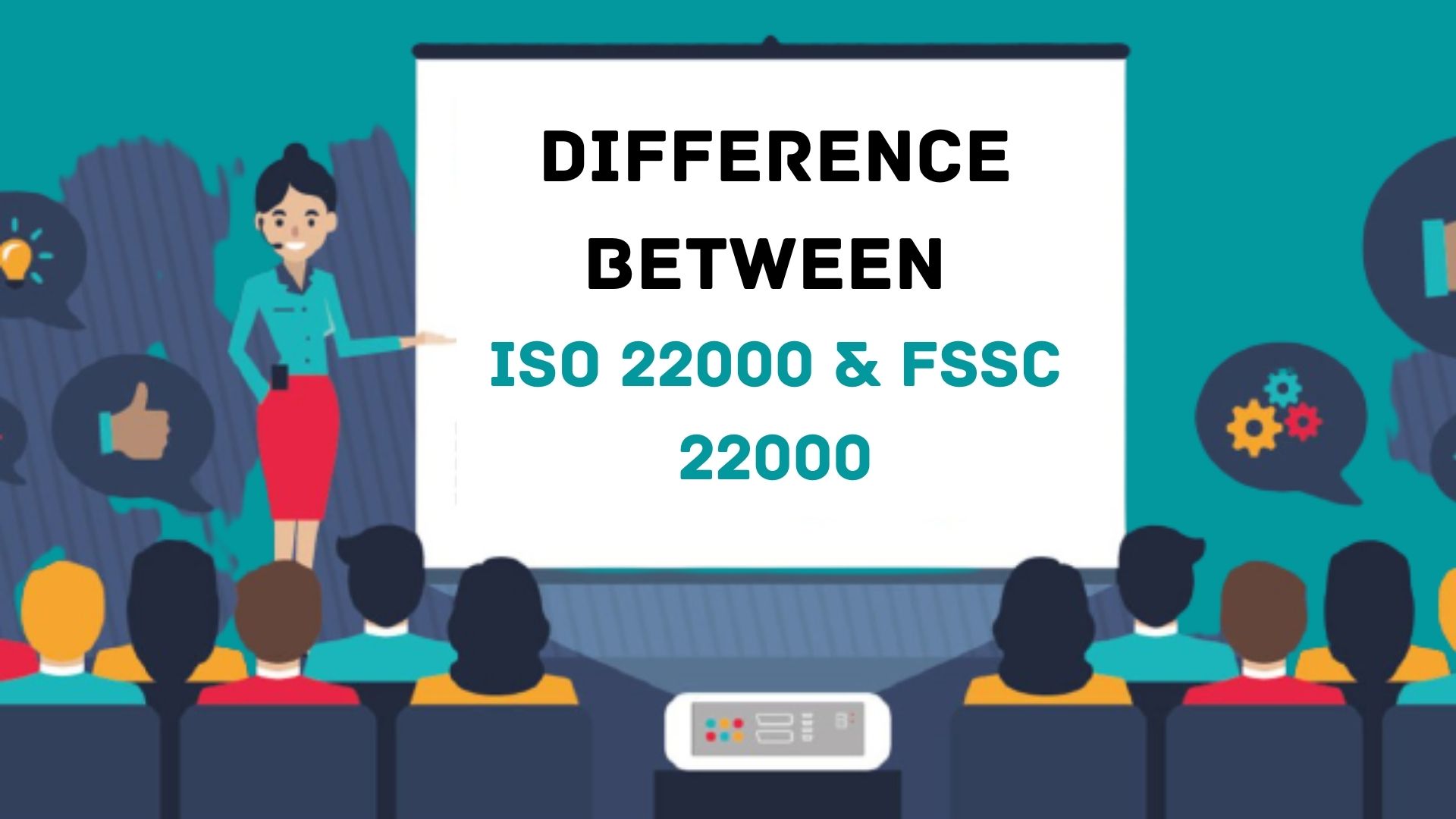The core difference between ISO 22000 and FSSC 22000 is that ISO 22000 certification is not certified by GFSI however FSSC 22000 certification is certified by GFSI. What does this mean and is it important? Another difference lies in the composition of ISO 22000 and FSSC 22000.
Let's go through each and finally distinguish between the two values of ISO 22000 and FSSC 22000.
ISO 22000 is defined
- The ISO 22000 standard was first released in 2005 and last
updated in 2018 Thus, ISO 22000: 2018 is the latest ISO 22000 standards.
- ISO 22000: 2018 is a food safety management system that is
applied by the food industry within the price chain. It focuses on the
application of quality assurance systems in accordance with ISO 9001 in the
management of food safety management systems.
- ISO 22000: 2018 focuses on management practices, including
policies and procedures .The standard specifies a list of pre-programmed PRPs
that will definitely work but does not describe how these PRPs should be
implemented.
- In other words, ISO 22000: 2018 has to be used in combination
with ISO technical standards or various Good Practice Standards (GMPs).
- In fact, a company can choose any GMP standard with the
minimum requirement, as long as it covers the list of GMPs covered by the ISO
22000 certification.
- Moreover, the ISO 22000 certificate is not recognized by the
Global Food Safety Initiative (GFSI). An industry firm ensures that the GFSI
certificate applies the same standards during the programming certificate.
What is FSSC 22000?
- FSSC 22000 versions 5.1 were released on June 3, 2019, and
have been audited by certification bodies since January 1, 2020.
- GFSI FSSC recognizes 22000 certificates.
- The FSSC 22000 standard consists of ISO 22000 standards,
technical standards and additional independent standards such as additional
requirements.
The primary standard used to obtain
the FSSC 22000 Version 5.1 certificates is ISO 22000: 2018, depending on the
sector and in combination with one of the following ISO b technical standards:
- ISO / TS 22002-1: 2009, Food Production.
- ISO / TS 22002-2: 2013, Catering.
- ISO / TS 22002-3: 2011, Agriculture.
- ISO / TS 22002-4: 2013, Food Packaging Production.
- ISO / TS 22002-6: 2016, feed and animal feed production.
- Pass 221: 2013, Retail / Shop Market.
- NEN / NTA 8059: 2016, Transportation and Conservation (ISO
22002-5 on October 19).
The FSSC 22000 also has the following
additional requirements:
- Service management.
- Product label.
- Food Safety - Threat Assessment.
- Food fraud.
- Use the logo.
- Management of allergens (food chain categories C, E, FI, G,
I&K).
- Environmental chain monitoring food chain category C,
I&K).
- Product formula (food chain category D).
- Transportation and distribution.
It is
important to note that for the needs of the customer, as well as the rules and
regulations of your country, you have to meet the above standards and
additional requirements.
There are
4 differences between ISO 22000 and FSSC 22000
- The ISO 22000 standard applies only to management systems.
- As long as PRP is implemented according to the standard, it can be used with other GMP standards.
- GSFI does not recognize ISO 22000 certification.
- FSSC 22000 consists of ISO 22000: 2018, ISO specific technical standards and additional requirements. GFSI recognizes FSSC 22000 certification.
If you need any help regarding any kinds of ISO certificate feel free to contact us a leading consultant of ISO Certification in Delhi. Our Toll Free number 1800-3070-2070, Our Business advisor will explain you in details.
Tags-
Difference between ISO 22000 and FSSC 22000, ISO 22000 and FSSC 22000, ISO 22000 and FSSC 22000 Difference, ISO 22000 and FSSC 22000 Training, Difference of ISO 22000 and FSSC 22000, Difference between ISO 22000 certification and FSSC 22000 certification, Difference between ISO 22000 standards and FSSC 22000 standards

